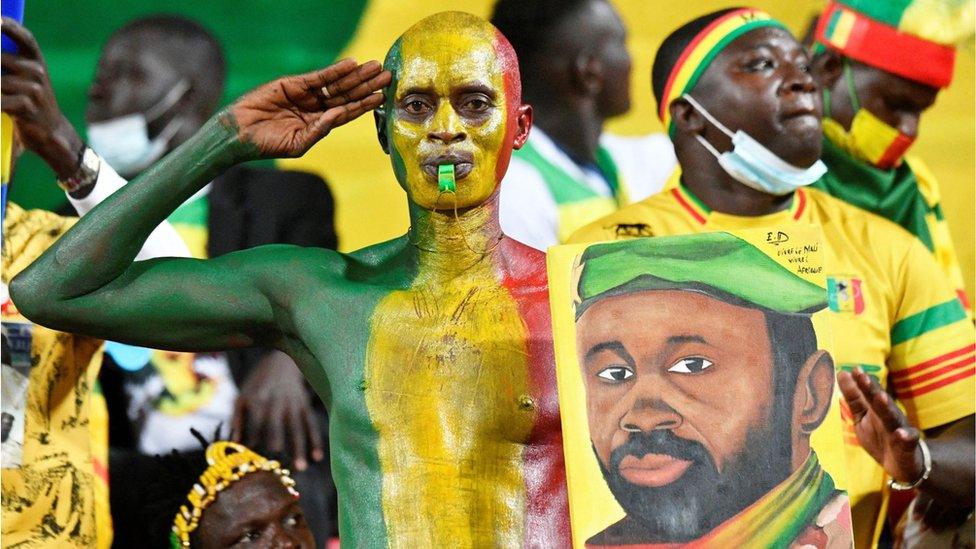Sierra Leone coup attempt: What may have sparked the violence
- Published
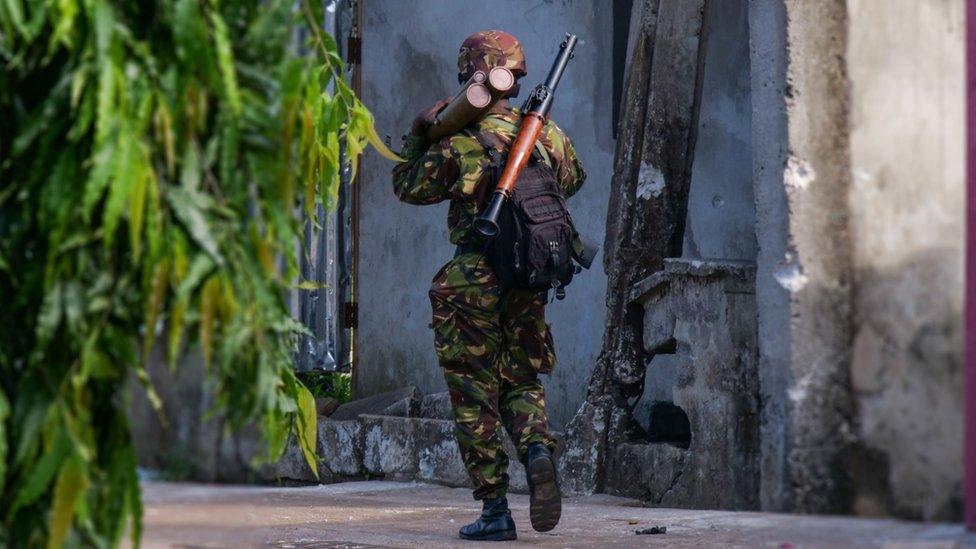
An armed soldier patrols the streets of Freetown following a series of attacks
Freetown, the capital city of Sierra Leone, was jolted awake by gunshots on Sunday morning.
It was not clear at the time, but the government now says that this was a coup attempt.
Armed men had tried to break into an armoury at a military base near the president's home, then attacked two of the city's main prisons, releasing some of the inmates.
At least 19 people, including 13 soldiers, died in the violence, according to the army. The government says 13 military officers and one civilian have been arrested.
The president has vowed to prosecute the gunmen - but what was their motive? Were they inspired by military takeovers elsewhere in the region?
"The days, weeks, even months leading to Sunday's events, there was no clue, none whatsoever that something of this nature would happen," says Valnora Edwin, a civil society advocate and political analyst based in Freetown.
"But in hindsight when you put the pieces together, you realise that there was a lot of discontent and something was bound to spark."
For Ms Edwin, there were a number of issues that may have contributed to Sunday's mutiny.
One of them is politics.
High unemployment mean lots of people want steady government jobs, she explains. This means the stakes are high during elections - people feel they need to be affiliated with certain parties in order to have access to state jobs and other benefits.
"If your political party loses, that means someone else comes in and if you've been open about your political affiliation you lose all you have: influence, opportunities and access."
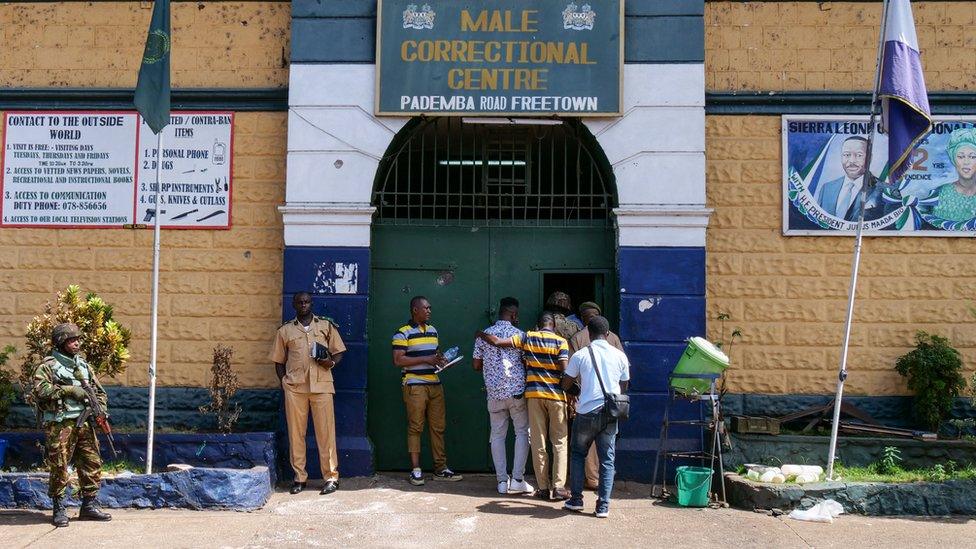
Some of the prisoners who escaped were returned to their cells on Monday
Sierra Leone's information minister and army spokesperson have said soldiers were among those responsible for Sunday's attack. This will come as little surprise to many Sierra Leoneans, including Ms Edwin.
She explains: "When a new government comes in, even within the military and the police, when it comes to promotions, transfers, retirement they favour certain ethnic groups.
"There's a lot of discontent among the military and police."
A bleak economic outlook may also have contributed to Sunday's events.
Like many countries in the region, Sierra Leone imports a lot of what it consumes, making consumers in the country vulnerable to external economic shocks. Inflation in Sierra Leone is over 50%.
Ms Edwin explains: "Other countries have put policies in place to cushion the effect as best as possible, but the current state of our economy leaves much to be desired. Something more needs to be done to cushion the impact of external shocks."
Alie, a 61-year-old businessman who lives in Freetown agrees that politics has an influence on the armed forces.
"Politics is in every sphere of life in this country. The security forces are hugely divided along these lines. Each administration that comes in tries to get rid of supporters of the opposition in the armed forces," he tells the BBC on condition that we do not publish his second name.
In June, President Julius Maada Bio was elected for a second term after narrowly avoiding a run-off.
The main opposition party, the All People's Congress (APC) questioned the result and boycotted parliament for four months. The stalemate only ended after mediation by the regional bloc Ecowas.
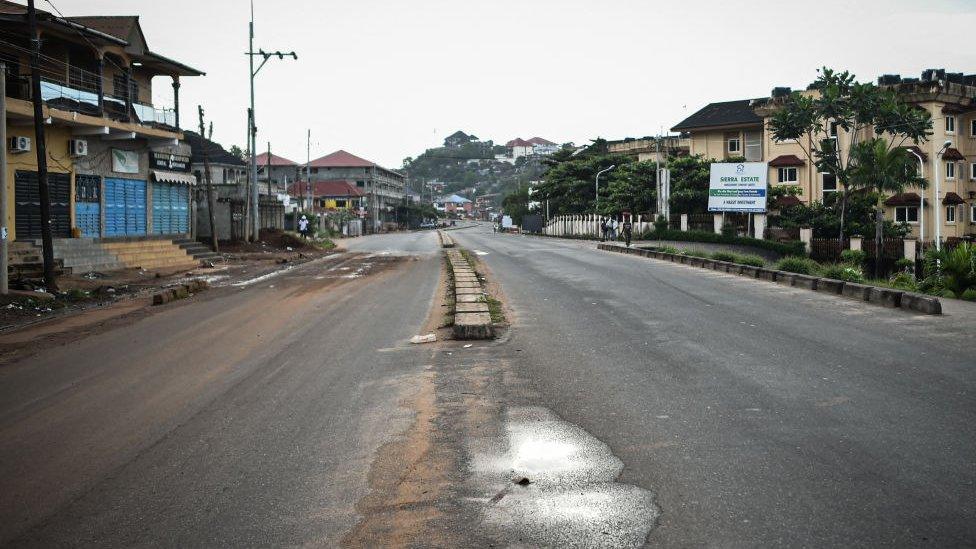
Sierra Leoneans were advised to stay indoors on Sunday
Alie believes some APC supporters, including those within the armed forces, still think the party was robbed.
"Many people think the [President Bio's] SLPP didn't win and that has led to this anger where some people think they have the power to reverse what has happened," he says.
International observers criticised the June elections, highlighting a lack of transparency in the count. Afolabi Adekaiyaoja from the Centre for Democracy and Development was part of a civil society group that monitored the elections and raised a number of concerns.
"The president won re-election on the first ballot even though polls and the PVT (Parallel Vote Tabulation, or exit polls) that were carried had predicted it was much more likely that the president would need to go for a second ballot to get re-elected," he says.
Within two months of the election, the authorities said they had arrested a number of people, including members of the armed forces, who were plotting a coup against the president. It is not clear what happened to them, but for Mr Adekaiyaoja it reinforces the message that President Bio's government is under threat.
None of the commentators that spoke to the BBC for this article believe the string of recent coups in West and Central Africa directly influenced the events in Sierra Leone on Sunday. Instead, they cite specific political and economic factors.
But Mr Adekaiyaoja says we are unlikely to see an end to soldiers rebelling if issues around governance and election fraud are not addressed.
"An election process needs to be free, fair and credible. Where there are significant concerns about the validity of the process then it is only going to lead to questions about the legitimacy of the leader and concerns about how true that support is.
"Because if you believe that a leader doesn't have as much support as was required then you might want to carry out a coup, for example," he says.
Related topics
- Published31 August 2023
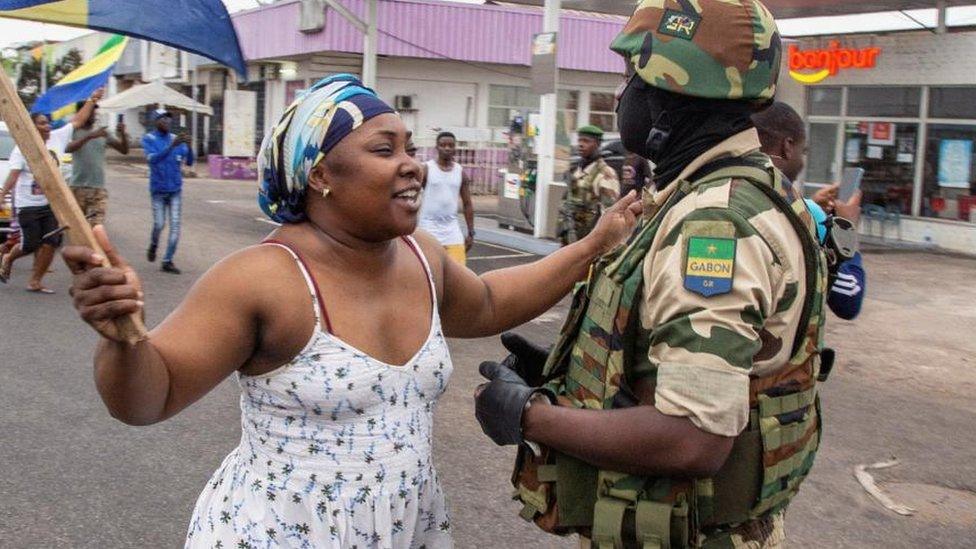
- Published8 February 2022
